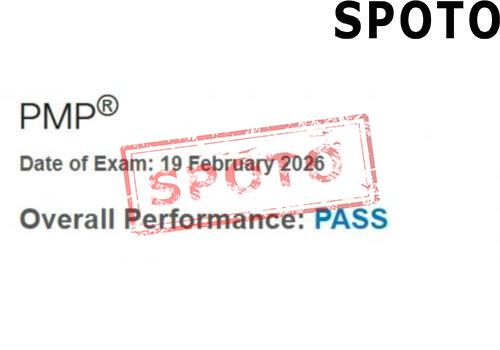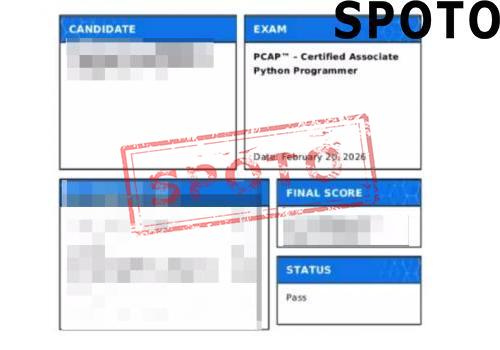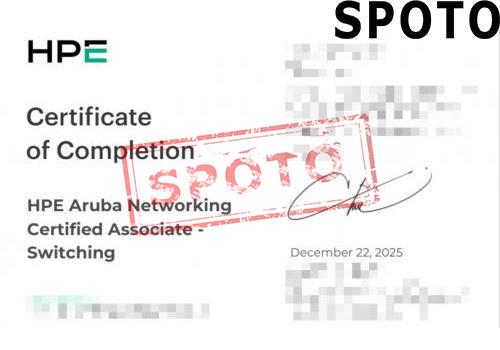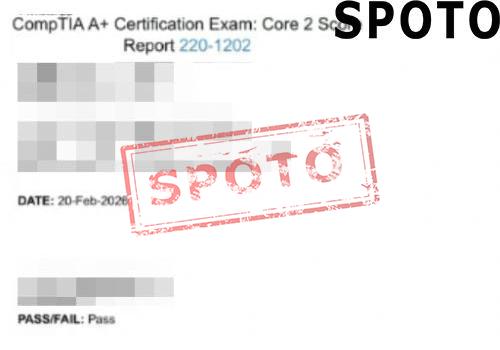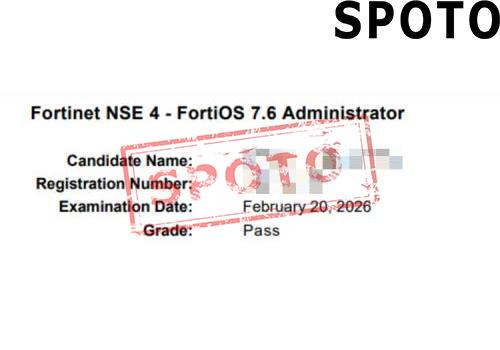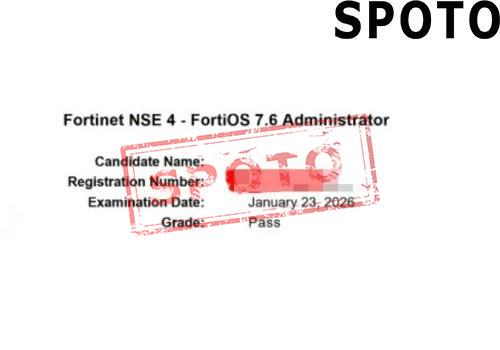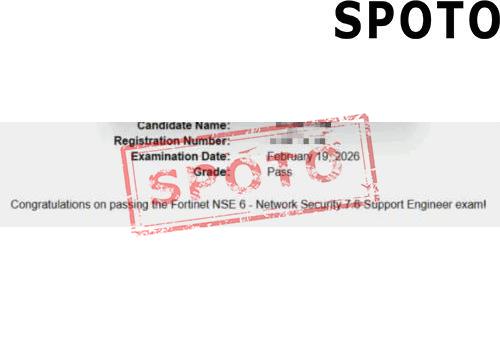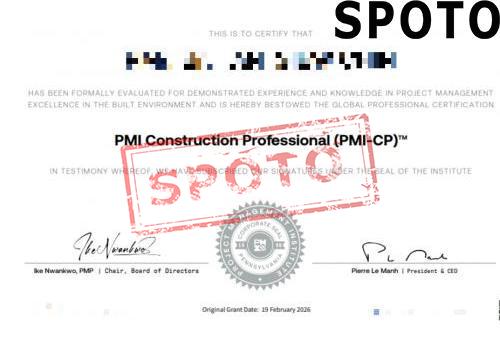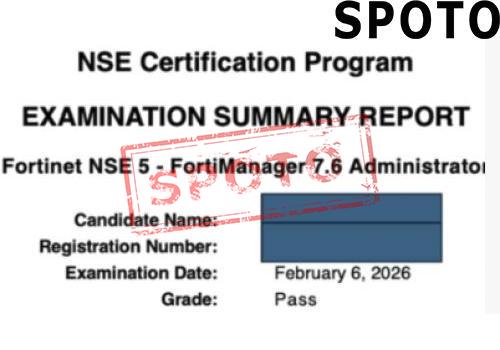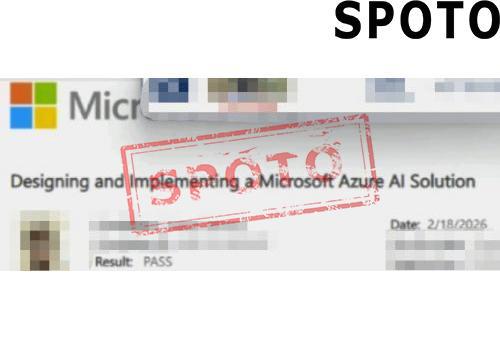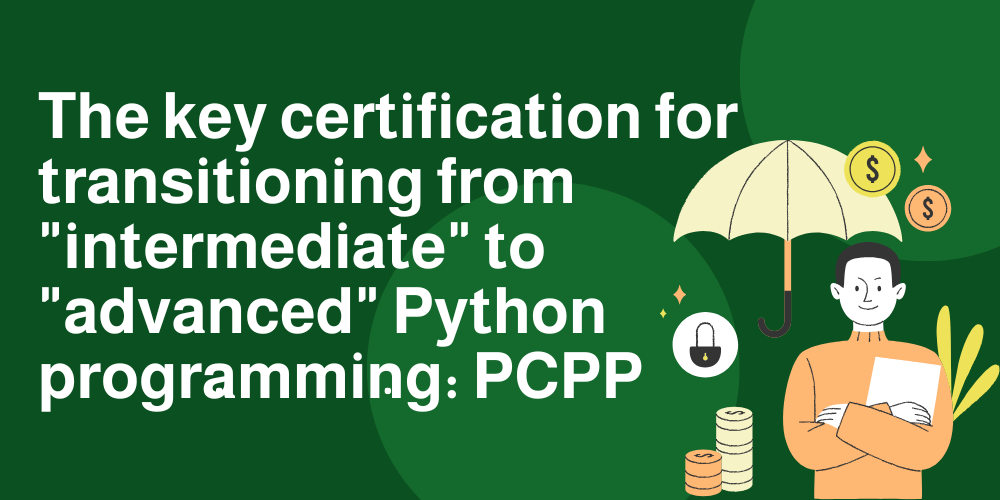
Table of Contents
- 1. Introduction to the PCPP certification
- 2. The Competitive Edge of a PCPP Certification
- 3. Core Components of the Python Certified Professional in Python Programming Certification
- 4. What are the requirements to be a PCPP?
- 5. Comparable Certifications to Python Certified Professional in Python Programming Certification
PCPP is a key high-level authoritative certification for Python programming that focuses on advanced programming techniques and practical skills in professional fields.
1. Introduction to the PCPP certification
Python Certified Professional in Python Programming (PCPP) is an advanced version of PCAP, launched by the Python Institute, which focuses on verifying practitioners' mastery of advanced programming techniques, professional applications, and project engineering abilities in Python. It is an authoritative advanced qualification in the field of Python programming.
PCPP certification is divided into two directions: PCPP-32-1 and PCPP-32-2. To obtain complete PCPP certification, it is necessary to pass both directions. The aim is to cultivate advanced technical talents who can independently design and develop complex Python projects and solve core problems in professional scenarios.
When Python developers need to shift from "completing simple functions" to "building complex systems," they need to break through the limitations of intermediate programming, master advanced syntax features, professional domain frameworks, and engineering development thinking. The core of PCPP certification is to cultivate "senior developers with advanced Python technical skills and practical experience in professional fields," rather than simply "technical users."
It requires the holder to not only be proficient in using advanced features of Python, but also independently complete complex projects in specific professional fields, while possessing complete engineering capabilities in code optimization, testing, and deployment, meeting the core needs of enterprises for advanced Python talents.
This kind of talent is usually competent for the core Python development position of enterprises. In Internet companies, PCPP licensees can independently design and develop high concurrency Web backend to achieve user authentication, data caching, distributed deployment and other core functions; In the data analysis team, the ability to build automated data pipelines, process TB level data, and generate visual reports and predictive models; In system integration scenarios, cross platform tools can be developed to address complex issues such as compatibility and stability.
2. The Competitive Edge of a PCPP Certification
PCPP is a globally recognized advanced Python certification with high recognition in the IT industry. It is the core symbol that distinguishes between "intermediate development" and "advanced development." When multinational companies recruit senior Python positions, it is often listed as a "priority condition."
PCPP certification is designed in different directions to help developers clarify their areas of expertise and avoid being too comprehensive to be precise; at the same time, the exam content is tailored to the actual needs of the enterprise, and after learning, it can be directly applied to work, improving project quality and development efficiency.
Holders of PCPP certification can join the Python Institute's global professional community to access advanced technical documentation, industry cases, exclusive recruitment opportunities, connect with experts and senior developers in the same field, expand their career network, and lay the foundation for future career development and technology entrepreneurship.
3. Core Components of the Python Certified Professional in Python Programming Certification
The PCPP certification system establishes a complete competency framework for advanced programming and professional applications in Python, divided into two independent certification directions: PCPP-32-1 and PCPP-32-2.
PCPP-32-1 belongs to core advanced programming, delving into the essence of the Python language, covering advanced features such as decorators, metaprogramming, and context managers, and mastering memory management and performance optimization techniques.
Proficient in concurrent programming models such as multithreading, multiprocessing, and coroutines, able to select the optimal solution based on task characteristics. Proficient in network programming and API development, proficient in using Flask to build RESTful interfaces, Git version control, and project engineering specifications, and have the ability to build distributable Python packages.
PCPP-32-2 focuses on professional field applications and offers three in-depth professional directions to choose from: web development, proficient in Django full stack development, including enterprise level application skills; Proficient in using Pandas, NumPy, Matplotlib and other libraries for data processing and visualization in the field of data science, with a solid foundation in scikit learn machine learning; The system management direction has the ability to develop and operate automated scripts, container management tools, and cloud service integration.
In summary, PCPP certification places special emphasis on cultivating students' problem-solving abilities in real production environments, helping Python developers achieve a leap from intermediate to expert level through systematic advanced courses. It includes the ultimate exploration of language depth and the complete implementation of industry best practices, providing students with comprehensive professional competence certification.
4. What are the requirements to be a PCPP?
(1) Qualification prerequisites:
The Python Certified Professional in Python Programming exam requires passing the PCAP certification from the Python Institute or having equivalent advanced Python development experience, independently completing complex projects
The Python Institute recommends that you have a foundation in your professional field and master basic statistical knowledge.
(2) Training and examinations:
The Python Certified Professional in Python Programming exam is divided into PCPP-32-1 and PCPP-32-2, which require separate registration and passing;
The exam question types include multiple-choice questions, code completion analysis questions, practical programming questions, etc. Each exam consists of 40 questions and lasts for 90 minutes. The maximum score is 100 points, and passing with a score of 70 or above will cost approximately $395 per exam.
(3) Qualification maintenance:
The Python Certified Professional in Python Programming certificate is valid for life and does not require renewal. However, Python technology and professional frameworks are updated quickly, and it is recommended that you continue to learn cutting-edge technologies to maintain competitiveness.
5. Comparable Certifications to Python Certified Professional in Python Programming Certification
- Microsoft Certified: Azure Developer Associate (AZ-204)
- AWS Certified Developer – Associate
- Professional Scrum Developer (PSD II)
- Google Professional Machine Learning Engineer
